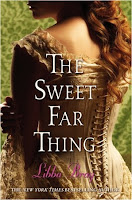I read The Hunger Games trilogy as the books were published, sadly finishing the series with Mockingjay in August. (As with the two books before it, I finished the book in one day.) Katniss, the female hero in this dystopian future, kicked ass and won me over from the start. In the past two days, I finished up the last two books (yes, all 1400 pages of them!) in the Gemma Doyle trilogy. Gemma is equally heroic, just kicking ass in the past.
As I was reading Libba Bray’s final two books—I can’t believe it took me this long to buy and read them!—I couldn’t help but think of Katniss Everdeen, Collins’s heroine of the future. What I like about them is that while they are great, they are also flawed. While they are likable, they are also contemptible at times. In short: they are real and they are us.
Beyond the two characters as areas of study, both sets of novels provide a range of perspectives for students to analyze, discuss, argue about, and critique—from violence, to societal ideals, to the roles of women, to man’s inhumanity towards the planet and each other. I would love to see both series being taught in school.

Let’s start with The Hunger Games. In the future, in what was once America as we know it, the country is a place of vast extremes. In The Capitol, excess rules and it takes more and more stimulation (food, clothes, color) for the citizens to exist. The ultimate stimulus is the annual “hunger games,” where two people are chosen (if you can call it that) from each of the twelve other districts to fight to the death—the entire gruesome spectacle is televised for “enjoyment.” Katniss, our heroine, steps in for her younger sister and through smarts, skill, luck, and strength manages to outwit the President: she and her fellow district choice, Peeta, win. And, that is just the first book in the trilogy. For those that haven’t read the series, I won’t spoil it.

However, what I want to stress is that even though I cheered for Katniss, she is not the infallible heroine; some may call her a tragic hero, but I am not sure about that. Perhaps she is simply a “real” hero. She is a reluctant hero. She hates the limelight. She doesn’t like the attention. She goads people. She can be fickle. Again, in short: she is each of us.


Then, there’s Gemma Doyle in Libba Bray’s historical/fantasy trilogy (A Great and Terrible Beauty, Rebel Angels, and The Sweet Far Thing). When the series opens Gemma is a typical teenager: pouty, selfish, and immature. These (self-recognized) traits are brought to the forefront when within the first 50 pages, her mother is murdered and Gemma is forced to think about her last words and actions toward her mother—and the strange vision she had where she saw her mother murdered. Shortly thereafter, Gemma is shipped off to England and The Spence School—where she is to be made a “proper” young lady. The remainder of book one and throughout books two and three, the reader is taken on Gemma’s fantastical journey to figure out not only who her mother was, but who she is—and what her role is in The Order, a group of priestesses who have ruled a mystical and powerful world called “the realms.”

Like Katniss, I cheered for Gemma. She is a reluctant hero. She goads people. She can be immature. At times I wanted to take her by the shoulders and shake her. Yet, she does good and makes positive changes. She is, again, like us.

Both series put social issues in the forefront: expectations for women and “proper” women’s roles; capitalism and greed; poverty; prejudice and racism; substance abuse (Bray even tackles lesbianism). All six books could easily be taught in conjunction with often used canonical works or on their own. For example, The Hunger Games trilogy could be taught with 1984 and/or A Brave New World. Bray’s three novels could be used with a number of Austen’s works (although I think Pride and Prejudice is best suited) or alongside Kate Chopin or Edith Wharton (or Emily Bronte).
Both series have enough allusions and cultural references for students to conduct any number of research projects. For example, after reading the Collins series students could investigate organ and limb transplants or stem cell research. With Bray’s novels students could research the prejudice against gypsies or the suffrage movement.
I could go on and on . . . and, literally, I wish I could read on and on.
I guess I will have to wait for the next kick-ass female series.

